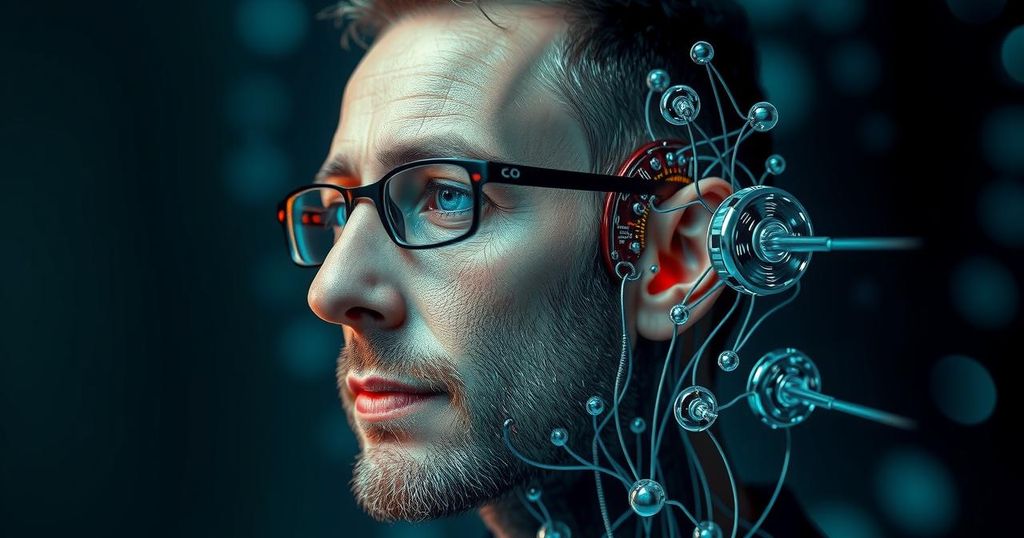Unlocking the Potential of AI: Insights from Jürgen Schmidhuber
Jürgen Schmidhuber, a pioneer of modern AI, aspired to create an artificial scientist to explore the universe’s mysteries. His early work in algorithms laid the foundation for AI applications seen in today’s technology. He advocates for responsible use of AI in medicine and environmental sustainability, asserting its potential in combating global challenges.
In the heart of the tech revolution, a visionary named Jürgen Schmidhuber embarked on a quest to create an artificial scientist capable of unraveling the enigmas of the cosmos. With the fervor of a young Einstein disciple, he dedicated his life to artificial intelligence (AI) research, achieving milestones that would eventually revolutionize our digital lives.
Back in the 1990s, as he toiled away in obscurity, Schmidhuber’s groundbreaking algorithms were largely dismissed. Yet today, they are the silent architects of our smartphones, translators, and even sophisticated chatbots like ChatGPT. His pioneering work in deep learning laid the groundwork for the AI that is now woven into the fabric of our daily routines, from Google searches to medical advancements.
Schmidhuber stands as a beacon of innovation, being hailed as a principal architect of artificial neural networks and a passionate advocate for developing Artificial General Intelligence (AGI)—a goal aimed at fashioning systems that emulate human reasoning. Amid widespread skepticism and apprehension regarding AI’s evolving role in society, he posits that AI can be a powerful ally, particularly in critical fields such as healthcare, environmental science, and global sustainability.
He envisions a world where AI combats climate change by predicting catastrophes like droughts and floods, improving air quality, and even revolutionizing the medical landscape by aiding in the prevention and detection of diseases like cancer and heart conditions. In his words, “If used correctly, artificial intelligence can help prevent environmental disasters… improve global issues… and help us prevent and detect diseases.” His message is clear: harnessing AI’s potential holds the key to addressing some of humanity’s most pressing challenges.
The emergence of artificial intelligence has dramatically transformed life as we know it, fueled by the relentless pursuit of innovation in computer science. Jürgen Schmidhuber, frequently dubbed the ‘father’ of modern AI, has been instrumental in this journey. His contributions, particularly in deep learning and neural networks, have set the stage for a myriad of applications that permeate our everyday lives, elevating technology from mere tools to pivotal partners in advancing human society. As we navigate the complexities of the 21st century, discussions surrounding the ethical and practical implications of AI have heightened. Schmidhuber’s perspective provides a refreshing contrast to the prevailing narratives of fear and skepticism, emphasizing the potential benefits that this technology can deliver across various domains such as medicine and environmental conservation.
Jürgen Schmidhuber’s journey from an idealistic dreamer to a cornerstone of artificial intelligence exemplifies the transformative power of vision and perseverance. His insights beckon us towards a future where AI not only enhances our daily lives but also plays a crucial role in resolving global challenges. By embracing AI’s capabilities, particularly in medicine and sustainability, we hold the potential to forge a healthier, more sustainable world—if we dare to channel our fears into informed action, ensuring that technological advancements serve the greater good.
Original Source: www.bbva.com




Post Comment